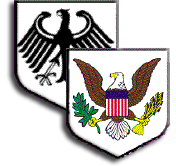Articles and Reviews
Review of Kentucky's German Heritage: H. A. Rattermann's History, by Genevieve Myers Hill
Northern Kentucky Heritage. 8: 2(2001)
H.A. Rattermann, Kentucky's German Pioneers: H.A. Rattermann's History.
Translated and edited by Don Heinrich Tolzmann. (Bowie, MD: Heritage Books, Inc., 2001).
Don Tolzmann's book is a translation of collected articles from Der Deutsche Pionier, a journal written in German, and edited primarily by H.A. Rattermann. The journal was originally published in Cincinnati, Ohio in the 19th century by the German Pioneer Society.
This is an historical account with names, dates, places and significant occurrences. At the end of each chapter, Tolzmann provides notes and bibliographical references.
For those family historians who may have encountered dead ends or mazes of brick walls while researching German ancestors, this book may provide new insight. German names may remain identifiable German names, but many families (or branches) Anglicized their names, or translated them into English. Examples of Anglicized names would be: Steiner became Stoner, Tischmann as Dishman, etc. Many names such as Adams, Myers, Haggard, and Kiser are Anglicized. An example of a translated name, such as Zimmermann, is interpreted as Carpenter. This does not mean that all English (or Irish, Scot) names were originally German. It merely means family researchers need to carefully analyze whether or not their names are German or not.
Don Tolzmann states that "Kentucky's German heritage is one that needs to be told." He points out in the Preface that German immigrants began settling in Kentucky in the 1700s, and currently "approximately one-fourth of Kentuckians claim German ancestry."
Tolzmann points out several reasons why there is scant knowledge of Kentucky 's German heritage. After all, German ancestry does not fit the ethnic stereotype of Kentuckians, especially Appalachians . In an interesting side note, Tolzmann quotes Thomas P. Baldwin, stating the "Appalachian dulcimer is of German origin." Another factor is the Germans tended to blend into the fabric of society. Also, prior to 1848, Germans were referred to as "Dutch," derived from "Deutsch." Lastly, the world wars fostered anti-German emotions. Much information contained in German language publications, such as books and newspapers were lost or destroyed.
This book provided helpful information for those interested in genealogical research. Please see review of Translated Abstracts of Death Notices in the Portsmouth Correspondent 1894-1908, as a companion resource. This book provides an informative insight into Kentucky's under-appreciated German pioneers.
Genevieve Myers Hill
